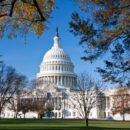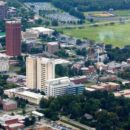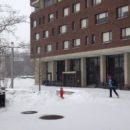Over the last several days, a UMass Amherst student from Iran has been denied access to a flight out of Tehran, where he traveled over winter break to get married.
Mohsen Hosseini, who is working on a PhD in computer engineering, would have flown into Boston, which was believed possible even after President Trump signed an immigration order last Friday. The order bans entry into the U.S. for people from Iran and six other countries, but on Saturday, a federal judge in Boston issued a temporary injunction.
What Hosseini and immigration lawyers didn’t know until this week was the U.S. had also revoked almost all immigrant and non-immigrant visas from those seven countries.
Hosseini said he’s been in touch on social media with three dozen other Iranian students who are also trying to return to school in the U.S.
“Some of these students have problems similar to me, and then we find each other,” Hosseini said.
The situation for students and non-students from the seven countries has been in constant flux. Kenneth Reade, Director of International Student and Scholars Services at UMass Amherst, has been watching all of it up close. He said getting this new piece of information changes the game.
In the short term, he said, “it’s kind of a checkmate.”
Hosseini is among the plaintiffs the ACLU and other attorneys will represent Friday in Boston federal court.




